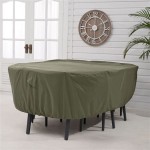How To Tell If Furniture Is Antique
Antique furniture holds a special charm and value, but determining its authenticity can be challenging. Here are some factors to consider when evaluating the age and authenticity of furniture:
1. Examine the Materials and Construction: Antique furniture is typically made from solid, high-quality materials such as mahogany, walnut, oak, or cherry. Look for signs of handcrafting, such as dovetail joints, mortise-and-tenon joints, or hand-carved details.
2. Check the Style and Design: Different eras have distinct furniture styles and designs. Conduct thorough research to familiarize yourself with the characteristics of various periods, such as Victorian, Edwardian, or Art Deco. Consider the shape, lines, and ornamentation of the piece.
3. Inspect the Finish and Patina: Antique furniture often has a beautiful patina that develops over time due to age and use. This patina can manifest in the form of a mellowed color, worn edges, cracks, or a subtle sheen. Beware of artificial aging techniques that imitate this effect.
4. Examine the Hardware: Original hardware, such as handles, knobs, and hinges, can provide valuable clues. These components should complement the style and period of the furniture. Look for signs of wear and patina consistent with the age of the piece.
5. Study the Provenance and History: If possible, gather information about the furniture's provenance, including its ownership history and any documentation or markings. Family records, receipts, or labels can add credibility to its authenticity.
6. Consult with Experts: Consulting a reputable antique dealer or appraiser is highly recommended. They possess the knowledge and experience to provide an informed evaluation and certification, if requested.
7. Beware of Reproductions: Some furniture may appear antique but is actually a reproduction. Examine the construction, materials, and patina carefully. Pay attention to any inconsistencies or signs of modern manufacturing techniques.
Remember, identifying antique furniture requires a combination of knowledge, experience, and careful examination. By considering these factors, you can make informed decisions about the authenticity and value of potential antique pieces.

A Lesson In Identifying Furniture Age Simple Decorating Tips

9 Signs Your Furniture Is Over 1 000 Gray S Auctioneers

How To Tell If Furniture Is Antique

How To Identify Antique Furniture Buyer S Guide Styylish

Styles Of Antique Furniture Detective Series Part 1 Euroluxhome Com

How To Determine What S Valuable Antique Furniture Elizabeth Appraisals

How To Tell If Old Furniture Is Valuable Amish Handcrafted

Antique Vs Reproduction Period Furniture How To Tell The Difference Hemswell Centres

How To Tell If A Piece Of Furniture Is Real Wood My Creative Days

How To Tell If Wood Furniture Is Actually Antique Joshua Kodner Auctions
See Also








